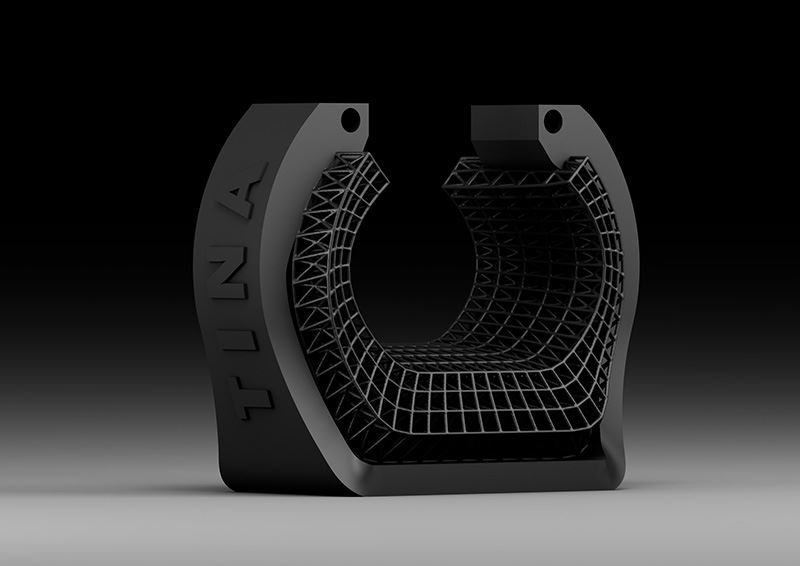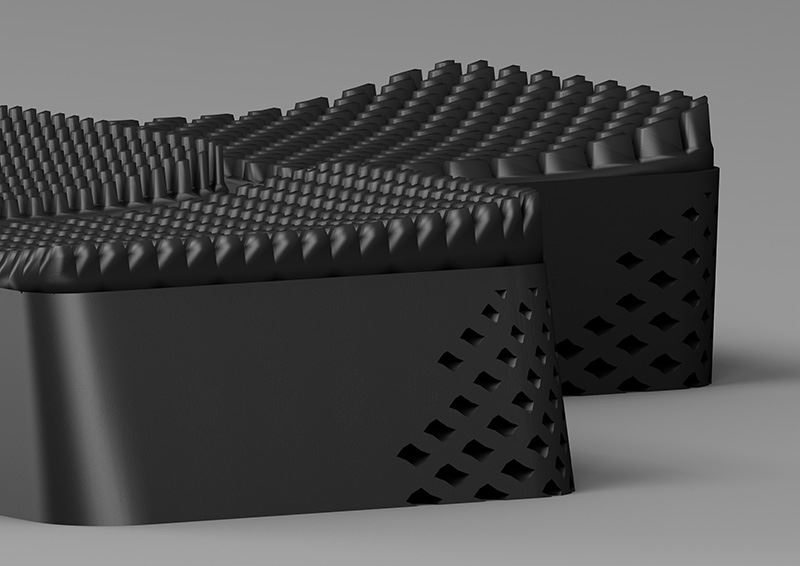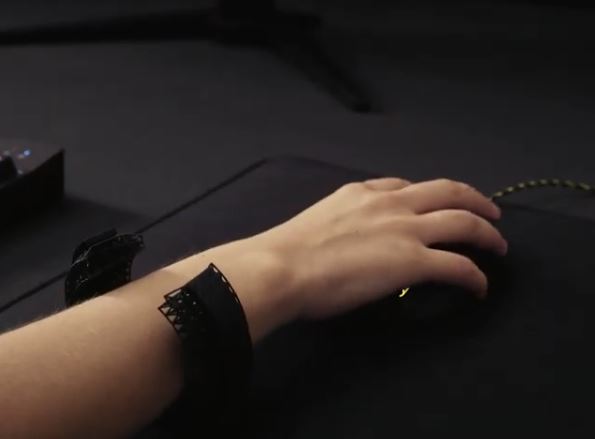![The biometric wrist support [Image UNYQ via YouTube]](https://fabbaloo.com/wp-content/uploads/2020/05/ikeagamer4a_img_5eb0965a26241.jpg)
A personalized product line is 3D printing comfort for gamers.
It started with their butts.
Around 2.2 billion people globally fit under the “gamer” umbrella; estimates say around 14 billion hours of games are played weekly. That’s a lot of sitting around and pushing buttons, so those had better be 14 billion comfortable hours. Starting with the bum makes sense: it’s the seat of sitting, after all.
So last year UNYQ — best known for personalized 3D printed prosthetic products — and IKEA — best known for difficult DIY instructions and tasty meatballs — launched a collaboration. A custom butt-fitted stool would be created with UNYQ’s photogrammetry expertise and 3D printed for each order.
The collaboration is now expanding beyond the posterior, looking up toward the hands for computer-based gaming.
These all fit into the UPPKOPPLA (“online”) collection, which will commercially launch next year, powered by an app.
The newest UPPKOPPLA introductions were made this week at Democratic Design Day, an annual IKEA event. Designs drew from Area Academy expertise, as an educational e-sport company thoroughly understands what gamers need, how they feel, what they want.
I used to live in a gamer household; the physical strain is real. And, usually, ergonomic accessories are pretty pricey and still one-size-fits-most.
So the UPPKOPPLA collection is striving to ensure actual comfort made for the actual people who will use the pieces. They explain the new introductions as including:
-
A biometric wrist support which maintains the correct height of the gamers’ wrist to the keyboard, reducing strain on their tendons
-
Soft pliable, vented keycaps which make the keyboard feel like a physical extension of a gamers’ fingers
-
A portable mouse “bungee” which clamps the users’ mouse cable in place, preventing tangling and enabling full freedom of movement.
Each of these will be 3D printed using Carbon’s technology, which has been proving that individualized experiences in games can be a game-changer. It seems that generative design also comes into play in the design process, as well:
“We have the ability to address the unique needs of these individuals and, in turn, personalise, protect and improve their game. Additionally, the generative design and additive manufacturing process simplifies and shortens value and supply chains, making it easily-replicable across different products, more affordable and allowing individuals to partake in the design process,” said Eythor Bender, Co-Founder and CEO of UNYQ.
The products will be run through a smartphone app, which will use UNYQ’s body scanning tech (via phone camera) for that personal fit. Users can then customize and tweak the design to their liking. Delivery time is said to be “within weeks.”


Gamers tend to fall into the ‘underserved’ category of consumers. While most focus is on, well, the games, the people playing them have been more secondary to the market. UPPKOPPLA is looking to serve those underserved.
”It’s actually striking how unexplored this part of the gaming industry is. Focus has always been on the hardware, and everything else has been ignored,” said Tommy Ingemarsson, Founder and CEO of Area Academy.
The designs also extend the general benefits of 3D printing to this market. That is, a shorter supply chain, less waste in production, no shelves and shelves of physical inventory,
UPPKOPPLA is also itself a springboard. It’s a good starting place, IKEA and UNYQ say — emphasis on starting. No real details about additional markets to be targeted in the future are available just yet, but the releases say:
“While the collaboration is initially focused on the gaming community, the two companies see the opportunity to leverage this concept across a range of sectors, tapping into other underserved communities, with varying interests, unique preferences and specific needs.”
And
“Exploring the technique by UNYQ, built upon an initial body scan to add a personal fit to the following 3D-printed products, it is possible to customise products after different physical needs and taste. In the long run, IKEA wants to apply the new learnings to other groups of people and customers with specific requirements. … The ambition is that new learnings from personalisation for gamers will lead to solutions also for people suffering from, for instance, physical disabilities or physical strains.”
Such product launches will only continue to become more common as Industry 4.0 brings more capabilities together to create consumer-reaching markets with accessible technology.











